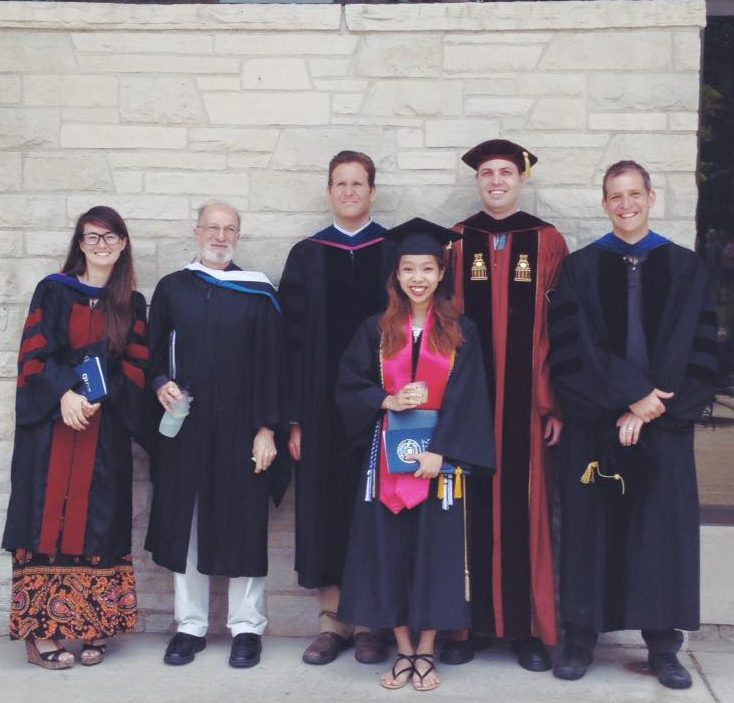In a twist on the “Life After Lawrence” meme, Professor Merton D. “Marty” Finkler officially retired yesterday, after serving on the economics faculty for more than 30 years. Professor Finkler is the consummate economist, always interested in talking about economics and ideas whether in class or at the ball game. He also has a remarkable versatility, from his principal field of health economics to his core (and terrifying?) macro theory course to urban economics to sports economics to environmental economics and on to China. It certainly is not possible to replace his expertise, at least not with one person. Fortunately, he will continue to teach and engage with our students as an emeritus professor, beginning this fall with his Investments class.
Here he is pictured in his new hood (!), along with our faculty and one of our more photogenic students. His Honorary Degree citation is below the break.
Continue reading Master of Supply & Demand… and Lots of Other Stuff





 Our first edition of the summer mailbag is here with a contribution from the always ebullient “Mr. O,” who says he sees economics everywhere these days. The article in question has to do
Our first edition of the summer mailbag is here with a contribution from the always ebullient “Mr. O,” who says he sees economics everywhere these days. The article in question has to do